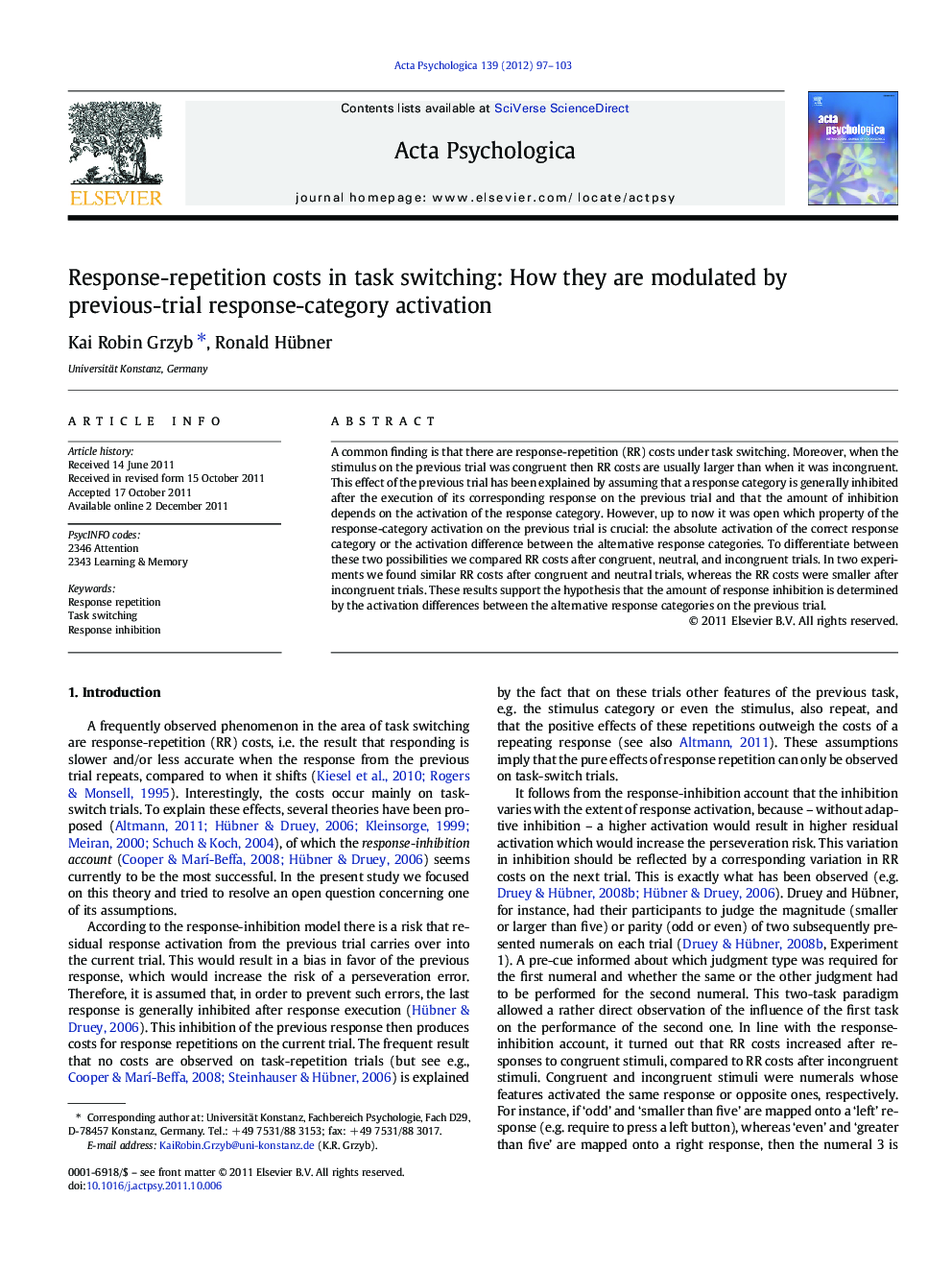| Article ID | Journal | Published Year | Pages | File Type |
|---|---|---|---|---|
| 920098 | Acta Psychologica | 2012 | 7 Pages |
A common finding is that there are response-repetition (RR) costs under task switching. Moreover, when the stimulus on the previous trial was congruent then RR costs are usually larger than when it was incongruent. This effect of the previous trial has been explained by assuming that a response category is generally inhibited after the execution of its corresponding response on the previous trial and that the amount of inhibition depends on the activation of the response category. However, up to now it was open which property of the response-category activation on the previous trial is crucial: the absolute activation of the correct response category or the activation difference between the alternative response categories. To differentiate between these two possibilities we compared RR costs after congruent, neutral, and incongruent trials. In two experiments we found similar RR costs after congruent and neutral trials, whereas the RR costs were smaller after incongruent trials. These results support the hypothesis that the amount of response inhibition is determined by the activation differences between the alternative response categories on the previous trial.
